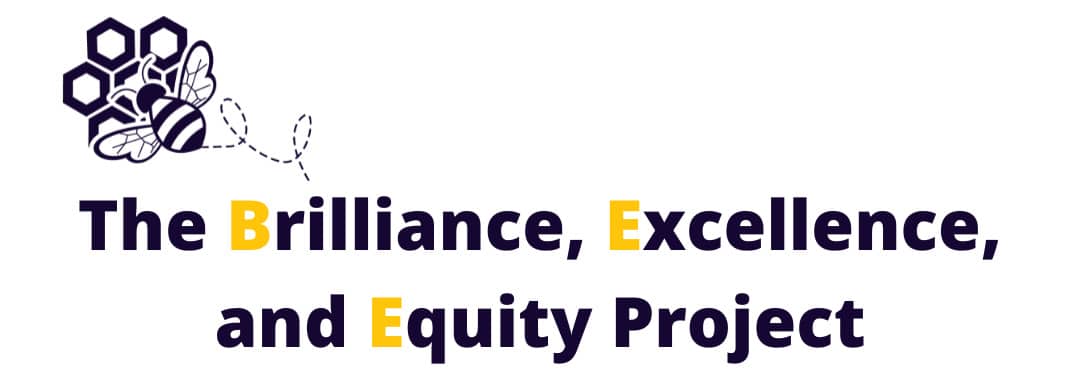FOR IMMEDIATE RELEASE
August 26, 2022
Arizona State University Researchers Find Participation in The Brilliance, Excellence, and Equity Project Increases Teachers’ Cultural Competency Around Gifted Education
TEMPE, AZ – A trio of researchers at Arizona State University recently completed an independent evaluation the effectiveness of The Brilliance, Excellence, and Equity Project and found that participation in the program made teachers more attentive to the inequities that exist in gifted education and better prepared to identify and support giftedness in Black and Hispanic students.
Sixteen Black and Hispanic teachers from across Arizona were selected to participate in The Brilliance, Excellence, and Equity Project’s inaugural cohort this past spring. Teachers representing five districts completed the 180 hours required to receive their Arizona gifted endorsement in a program that was specifically designed to dive into the nuance of race and culture and the different ways brilliance shows up in different populations. The hope is that with this framework as the foundation of their gifted training, teachers’ approach to identifying and supporting gifted education in the state will begin to chip away at the inequities that exist in the representation of Black and Hispanic students in gifted programs.
“The cultural framing teachers receive in our program is key to identifying more Black and Hispanic students as gifted,” says Autumn A. Arnett, the inaugural executive director of The Brilliance, Excellence, and Equity Project. “It is not enough to increase the representation of teachers of color in the workforce if those teachers have still been trained under and work in white supremacist systems of education. To truly be disruptive, we have to fundamentally change the way teachers and administrators view who can be brilliant and what brilliance looks like.”
The report, released Thursday, found that educators who participated in the program graduated more aware of the ways existing identification strategies for gifted students do not adequately address the unique abilities and strengths of students of color, with a greater understanding of giftedness and the ways it manifests differently across different cultures, and with a better understanding of the role teachers play in advocating for more diverse and equitable policies in gifted education.
As a whole, they also reported a shift from deficit-based pedagogy toward asset-based pedagogy and acknowledged the importance of employing gifted strategies to benefit all students and support greater critical thinking and student agency in the classroom.
“There is a lot of gate-keeping around gifted programs and gifted education,” Arnett says. “Western culture tends to teach that certain people are genetically predisposed to giftedness – and usually there’s a clear racial line we can see drawn around who gets to be brilliant. Eastern cultures tend to believe that everyone is gifted, and it’s up to the people around them to nurture and bring out that giftedness. That’s what we’re here to do: We’re here to teach educators how to see all of their students through an asset-based framework that allows them to recognize and nurture the brilliance in all of their students, but particularly their Black and Brown students, whose brilliance is so often overlooked and under recognized.”
View the full executive summary of the report here: BEE Project program report.
